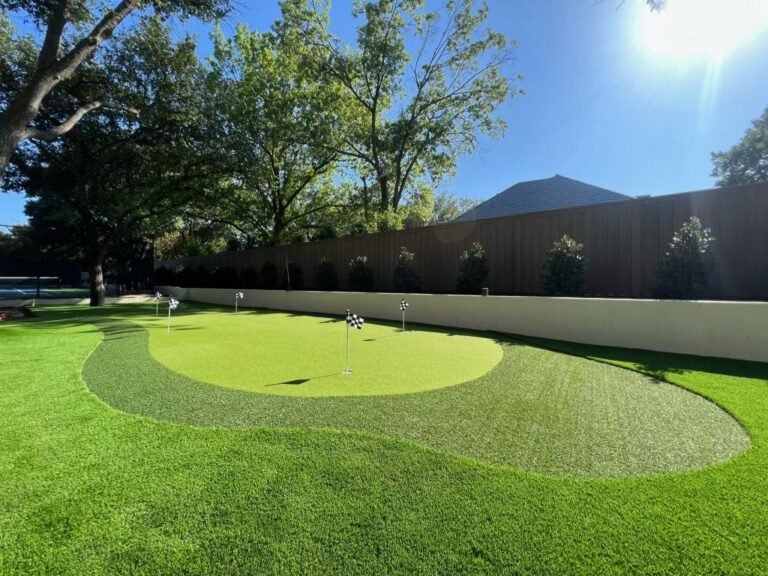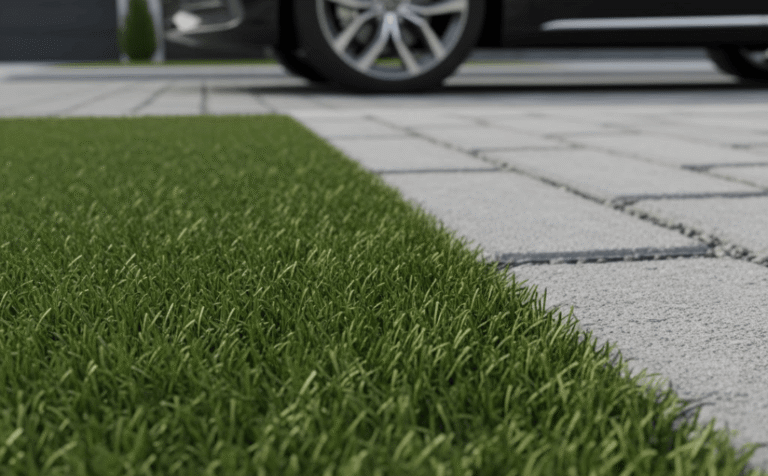Artificial Turf And Your Fur Babies

Why Veterinarians Recommend Artificial Turf for Dogs Allergic to Grass
One of the joys of owning a furry friend is taking them out for a walk in the park to run and play. But for those who have a dog that is allergic to grass, walks can be anything but enjoyable.
You’ve probably become used to seeing them sneeze and itch constantly. Even if you keep your yard meticulously clean, mere contact with the grass triggers your dog’s allergies.
You can tell they’re miserable. And you’re probably at your wit’s end trying to figure out how to keep them healthy and happy. You may have even considered giving up your home’s green space altogether. However, there’s no need to despair—artificial grass may be the perfect solution for you and your pet.
Dog Allergies are More Common Than You Think!
You’re not alone if your dog has grass allergies. According to the Asthma and Allergy Foundation of America, up to 15% of Americans are allergic to grass and just like humans, dogs can also suffer from allergies. In fact, according to the American Kennel Club, about 10% of dogs in the United States are afflicted with some sort of allergy.
The most common type of allergy in dogs is atopic dermatitis, which is an inflammation of the skin caused by an allergic reaction. Symptoms of atopic dermatitis include itching, scratching, red or inflamed skin, hair loss, and hot spots.
While there are many causes of atopic dermatitis, one of the most frequent is an allergy to grass. If your dog is allergic to grass, they may start to itch and scratch after being in contact with it. In severe cases, they may even develop hot spots or lose patches of fur.
The good news is that there is an easy solution to help your pet enjoy the outdoors in a safe and comfortable play space. Installing artificial grass is becoming increasingly popular among dog owners. Because synthetic pet turf is hypoallergenic many veterinarians recommend it for dogs with allergies.
4 REASONS WHY MANY VETERINARIANS RECOMMEND ARTIFICIAL GRASS FOR DOGS WITH ALLERGIES
1. It’s Chemical and Pesticide-Free – Artificial Grass Doesn’t Irritate Your Pets (Or you, For That Matter!)
One of the main reasons vets recommend artificial turf for dogs with allergies is because it doesn’t contain any of the chemicals or pesticides that can trigger an allergic reaction. Artificial grass is made from a variety of hypoallergenic materials, including nylon, polyethylene, and polypropylene.
As a result, it’s much less likely to cause an allergic reaction in dogs than natural grasses, which can contain pollen, mold, and other allergens. If you’ve ever tried natural methods of pest control, you know how difficult it is to keep your yard completely free of chemicals. With artificial turf, there are no chemicals or pesticides used in its production or installation, giving you and your pet peace of mind!
2. It’s Like a Having a Grass Maid – Artificial Grass is So Easy to Clean!
Another reason vets recommend artificial turf is because it’s easy to keep clean. Allergens like pollen and dust can easily become trapped in natural grass, but with artificial turf they can be quickly and easily brushed away.
You can also give it a quick rinse with a hose as often as necessary to remove any allergens that may have been brought in on your dog’s fur. Artificial turf drains quickly so your dog won’t end up standing in puddles of muddy water. Simplified cleaning that leaves a fresh scent is an important feature for busy pet owners!
A welcome benefit of artificial grass for pets is that it doesn’t need to be mowed, fertilized, or otherwise maintained like natural grass does. This means that you won’t have to worry about your dog coming into contact with harmful chemicals or activating their allergies while you’re tending to the lawn.
3. It’s Like Walking on a Green Cloud – Artificial Grass is Soft and Durable!
Many pet owners worry that artificial turf will be too hard on their dog’s joints, but that’s not the case at all. Artificial turf is actually softer than natural grass, so it’s gentle on your dog’s paws and joints. It’s also extremely durable, so it won’t get damaged by your dog playing on it or digging in it.
4. It’s Like Your Personal Pet Cheerleader – Gimme a “V” for Versatility!
Artificial turf is quite versatile. It can be used for sensitive pets in a variety of settings, including yards, patios, decks, balconies, and even indoors. So, no matter what size or type of space you have to work with, there’s a good chance that artificial turf will be a viable option for you and your pet.
If your dog is allergic to grass, don’t despair—artificial grass may be the perfect solution. Although synthetic turf may seem unconventional, it’s actually one of the best things you can do for your allergic pet. And you don’t have to give up your green space either!






